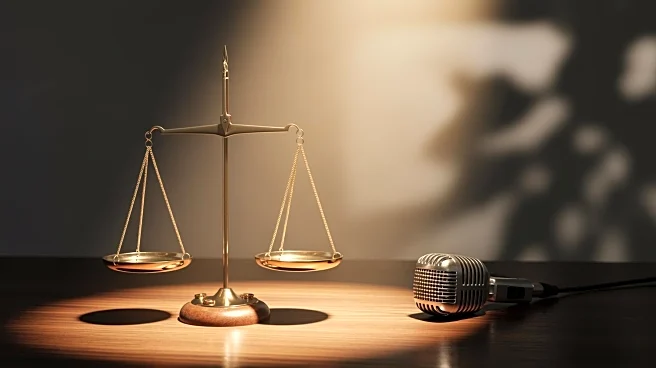What's Happening?
President Trump has announced his intention to sue the BBC for between $1 billion and $5 billion, following a documentary that his lawyers claim was defamatory. Despite the BBC's apology for an editing error in the documentary 'Trump: A Second Chance?',
Trump insists on pursuing legal action, stating that the broadcaster admitted to altering his words. The controversy has led to the resignation of BBC director general Tim Davie and head of news Deborah Turness. Trump argues that the lawsuit is necessary to prevent similar incidents in the future, although the BBC has rejected the defamation claim and refuses to pay compensation.
Why It's Important?
The potential lawsuit against the BBC by President Trump could have significant financial implications for the broadcaster, which is primarily funded by license fees. A successful lawsuit could impose a substantial financial burden on the BBC, affecting its operations and possibly leading to changes in how it handles content. The case also highlights the challenges of international defamation claims, as Trump may need to pursue the matter in U.S. courts, requiring substantial evidence of reputational damage. This situation underscores the complexities of media accountability and the impact of high-profile legal disputes on public broadcasters.
What's Next?
If President Trump proceeds with the lawsuit, he will need to file the case in U.S. courts due to the time limitations on defamation claims in the UK. The legal process will require Trump to provide compelling evidence of reputational harm caused by the BBC's documentary. The outcome of the case could set a precedent for future defamation claims involving international media organizations. Additionally, Trump plans to discuss the issue with UK Prime Minister Keir Starmer, which may influence diplomatic relations between the U.S. and the UK.
Beyond the Headlines
The controversy raises questions about media ethics and the responsibilities of broadcasters in accurately representing public figures. The incident may lead to increased scrutiny of editorial practices and the potential need for reforms in how documentaries are produced and edited. It also highlights the power dynamics between political figures and media organizations, and the role of legal action in addressing perceived injustices.
















